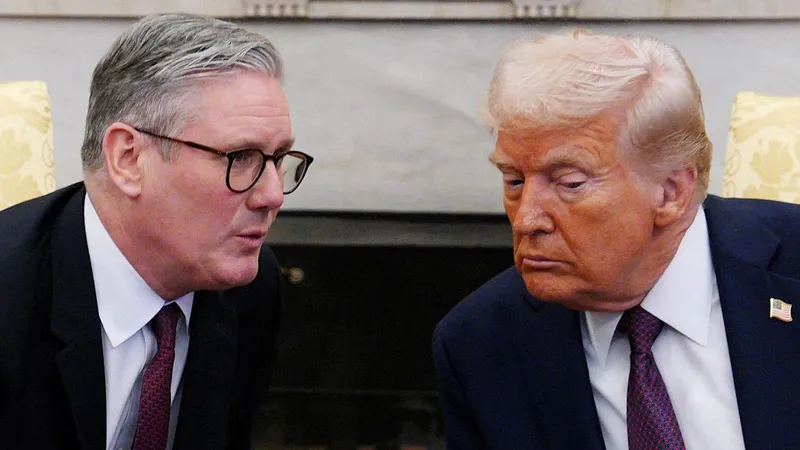LONDON — The British car industry, already battered by Brexit and global supply chain chaos, is now staring down a fresh gut punch: a 25% tariff on all foreign-made cars imported to the United States, announced by President Donald Trump on March 26, 2025. Set to kick in on April 2, the measure is sending shockwaves through UK factories, where assembly lines churn out vehicles that rely heavily on the American market. For an industry that’s been limping along, this could be the blow that breaks it.
The UK’s automotive sector isn’t some niche operation. It’s a cornerstone of British manufacturing, employing over 180,000 workers directly and supporting nearly 800,000 jobs across the supply chain. In 2024, cars were Britain’s biggest goods export to the US, with 18% of UK car exports—roughly 100,000 vehicles worth £7.6 billion—headed across the Atlantic. Now, with Trump’s tariffs looming, those numbers are at risk. Factories from Sunderland to Solihull are bracing for impact.
On April 16, the UK’s Business and Trade Committee heard grim testimony from industry leaders. Executives from major carmakers, including Jaguar Land Rover and Nissan, warned that the tariffs are already forcing tough calls. Some firms are slashing shifts, others are freezing hiring. A few are even eyeing layoffs, though they’re holding off in hopes of a last-minute reprieve. The committee’s report, published the next day, painted a stark picture: without urgent action, the tariffs could cost thousands of jobs and cripple plants that have been the pride of British engineering for decades.
The timing couldn’t be worse. Britain’s car industry has been on a rough ride since the 2016 Brexit vote. Leaving the EU meant new trade barriers, with customs checks and paperwork gumming up supply chains. Component shortages, especially for semiconductors, have kept production lines idle for months at a time. Just as the sector was starting to stabilize—output rose 2.3% in 2024, the first uptick in years—Trump’s tariffs have yanked the rug out. The Society of Motor Manufacturers and Traders, in a statement on April 18, called the tariffs “a devastating blow” to an industry already “fighting to recover.”
Across the Atlantic, the rationale for the tariffs is simple. Trump, in his March 26 announcement, said they’re meant to protect American jobs by making US-made cars more competitive. The policy applies to all foreign vehicles, with no exemptions—not even for allies like the UK. For British carmakers, this is a bitter pill. The US is their second-biggest export market, and brands like Mini, Rolls-Royce, and Aston Martin have built loyal followings there. But with a 25% price hike slapped on every vehicle, demand is expected to plummet.
In Westminster, the government is scrambling. On April 20, the Department for Business and Trade issued a statement pledging to “work tirelessly” with US counterparts to soften the blow. Trade Secretary Jonathan Reynolds, speaking to Parliament on April 22, hinted at possible retaliatory measures but stressed diplomacy first. Behind closed doors, though, insiders say the mood is bleak. The UK lacks the leverage to sway Washington, and with Trump doubling down on his “America First” agenda, negotiations are a long shot.
For workers on the factory floor, the tariffs are more than a policy debate—they’re a threat to livelihoods. In Swindon, where Honda once ran a major plant before closing it in 2021, the remaining car-related jobs are precarious. At Nissan’s Sunderland facility, one of the UK’s largest, managers have already warned of “significant challenges” ahead. A report from the UK Trade Policy Observatory, released on April 19, estimated that the tariffs could shave £3 billion off UK car exports annually, with ripple effects hitting suppliers, from steel mills to small parts makers.
Some companies are trying to adapt. Jaguar Land Rover, in a statement on April 17, said it’s “exploring all options” to mitigate the tariffs, including ramping up production at its US facilities. But for most, that’s not feasible. Building new plants takes years and billions—resources few firms have. Smaller manufacturers, like Morgan Motor Company, which handcrafts sports cars in Worcestershire, face an even steeper climb. Their niche vehicles, beloved by American collectors, could become unsellably expensive overnight.
The clock is ticking. With the tariffs set to start in days, British carmakers are caught in a vise—squeezed by rising costs, shrinking markets, and a government with few cards to play. Factories are on edge, workers are anxious, and an industry that’s been a British success story for generations is fighting to survive.
The tariffs take effect on April 2, 2025. The UK exported 100,000 vehicles to the US in 2024, worth £7.6 billion. The automotive sector supports 800,000 jobs nationwide.

